Introduction
The wine that has undergone little processing in the vineyard or cellar is called natural wine. It is made without the use of artificial fertilizers, herbicides, or pesticides by employing organic or biodynamic agricultural techniques. Rather than using commercial yeast strains during fermentation, natural winemakers usually rely on their native yeasts. Natural winemakers frequently avoid sulfites, resulting in wines with a broader range of flavors and aromas than conventional ones.
This could result in a final product that more faithfully captures the terroir and grape characteristics. The term “natural wine” refers to a philosophy and dedication to maintaining the unique qualities of wine that go beyond conventional marketing jargon. The wine section offers plenty of options; reds, whites, sparkling, still, and a variety in between are all available. The method used to make the wine determines its basic qualities.
A wine’s classification as natural depends on how the grapes are managed in the vineyard and cellar. But among wine connoisseurs, the new term that has gained popularity recently is natural wine. The natural wine movement is changing our perception of and enjoyment of this traditional wine. Since ancient times, people have appreciated wine, which has evolved into a global business with a rich history and innovative legacy.
The trend toward natural wine is growing in popularity; it challenges conventional winemaking techniques while providing a unique and sincere approach to viticulture. Natural wines are made using the least amount of additives and processing so that the true grape flavor and terroir may be appreciated. This concept has gained popularity among consumers who value transparency, sustainability, and a less involved approach to winemaking.
As more producers embrace this philosophy, this wine will continue to captivate connoisseurs and revolutionize the world wine industry. If natural wine is appealing to you, here are some key facts you should know.
History of Natural Wine
Our forefathers were cultivating the craft of winemaking long before the phrase “natural wine” appeared in contemporary discourse. Grape growing and fermenting were religious practices incorporated into everyday life in the cradle of ancient civilizations, from Mesopotamia to the Roman Empire. Natural wine first appeared in these earlier eras, when the land and the vine were of utmost importance.
Natural wine first emerged from the old winemaking techniques of our ancestors. Early on in the history of viticulture, winemakers mostly employed a naturally occurring fermentation process stimulated by wild yeasts that were present on grape skins and in the winery environment. Without using temperature controls or chemical additions, these winemakers produced wines that accurately represented the unique qualities of their region.
Growing popularity for industrial growth and regulation was attributed to the expansion of the wine business in the second half of the 1800s. Thanks to advancements in technology, wineries were able to employ additives, filtration, and cultured yeasts as standard procedures. Synthetic fertilizers, herbicides, and pesticides were also made possible for farming.
Technological advancements have standardized wine varietals and given winemakers more control over the winemaking process than before, when the wine sector was defined by its diversity.
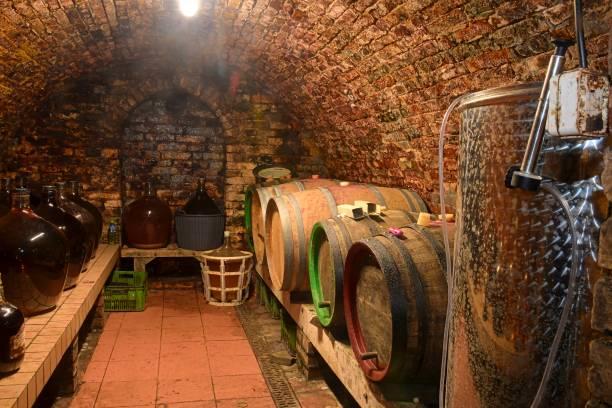
WHY IS NATURAL WINE SO SPECIAL?
This writer will explore natural wine types and production techniques, focusing on grape types, terroir, and climate. It highlights the growing demand for natural wine among customers who value transparency and sustainability. This wine is the result of simple winemaking techniques, originating from the vineyard rather than the cellar. Essential characteristics of natural wine include its unique taste and aromas, as well as its importance in food and drink selections. Here are some essential characteristics of natural wine:
Organic and Biodynamic Farming
Organic and biodynamic farming, a sustainable method that blends nature and human activity, is the foundation of natural wine. Healthy soil, robust plants, and more colorful grapes are all encouraged by this method. By using less equipment, fertilizer, and water, biodynamic methods seek to strike a balance between the natural world and wine. By reducing their effects and protecting ecosystems, winemakers put the long-term health of the environment first.
Wine connoisseurs’ entire wine-tasting experience is enhanced by the wines produced from this technique, which are a reflection of the vineyard’s distinct terroir. They will be able to produce fine wines for many years to come if they adopt these principles. The sustainability of the wine business and the vineyard environment are enhanced by biodynamic techniques, which employ cover crops and natural compost to increase soil fertility and biodiversity.
Winemakers can produce tasty, ecologically responsible wines that are appealing by reducing chemical inputs and enhancing natural processes.
The Impact of Terroir
The notion of “terroir” is crucial when discussing natural wine. The term “terroir” describes the particular natural elements of a vineyard, such as the soil, terrain, and temperature. Natural winemakers think that these factors influence the nature of the grapes and, in turn, the flavor profile of the wine. They therefore make an effort to maintain the unique qualities of the terroir of their vineyard, producing wines that are true representations of a particular location and period.
The focus of natural wine is on highlighting the unique qualities of the grape varietals and the terroir in which they are cultivated. The special interplay of soil, climate, and location known as terroir affects the flavor and personality of wine. These wine producers think that their wine will better represent the region it comes from if they let the grapes express their inherent flavors.
Profiles of Flavors
Sulfites are substances used in winemaking to keep the wine from spoiling and to preserve it. Conventional wines frequently have significant sulfite content, even though it is somewhat required. Natural winemakers, on the other hand, use less sulfite to bring out the genuine essence of the wine. This may produce wines with a greater range of flavors in addition to being more genuine.
Natural wines have a wide range of taste characteristics. Compared to traditional wines, they frequently have a wilder, more rustic taste. Natural wines can have a broad spectrum of flavors and aromas, from earthy, funky components to overtones of fruit and flowers. Those wine aficionados who are brave enough to sample wine may discover that every bottle offers something new and fascinating.
Minimal Intervention
Natural wine is distinguished by its minimal interference throughout the winemaking process. Advocates contend that the winemaker’s function ought to be restricted to supervising the spontaneous fermentation process instead of influencing it through chemicals or additions. With this method, the terroir—the area where the grapes are grown—as well as the distinctive aromas and qualities of the grapes are meant to be preserved.
In the cellar, natural winemakers don’t get involved. They do not add commercial yeasts; instead, they let the grapes ferment using their natural yeasts. Because the terroir of each vineyard comes through in the finished product, this leads to a more complex and distinctive flavor profile.
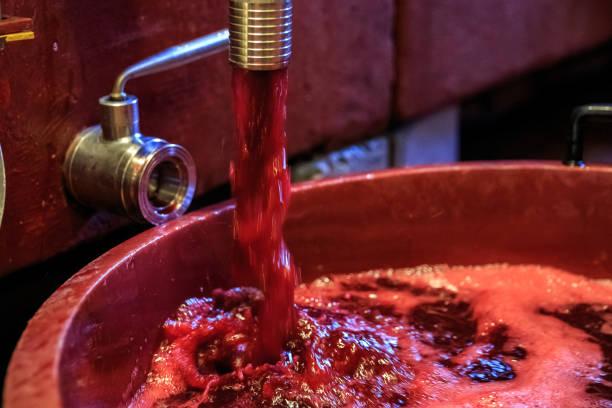
Absence of Additives
The absence of chemicals like sulfites, which are frequently employed as preservatives in traditional winemaking, is a distinguishing feature of natural winemaking. By using this method, the fruits and terroir are expressed more cleanly and authentically, enabling the wine to show off its distinctive qualities and represent its place of origin. Because it doesn’t include any artificial preservatives or additions, natural wine is characterized by its purity.
Sulfur dioxide, a popular winemaking addition, is absent from natural wine, guaranteeing an authentic expression of the grape and its origin. Unlike ordinary wines, this absence of chemicals allows for a more erratic flavor and fragrance. This means more exploration and excitement for wine fans since every bottle delivers a distinct and genuine experience.
Unrefined and Unfiltered Beauty
Unfined and unfiltered, natural wine keeps its natural sediment at the bottom and cloudiness at bay. This is what makes it unique. Natural wine has a distinct, rustic look that highlights its unadulterated and unfiltered character, emphasizing its genuineness and earthiness. Furthermore, sediment may add to the complexity and richness of natural wine, giving connoisseurs of the wine a genuinely engaging sensory experience.
A richer, more sophisticated drinking experience is provided by this low-intervention procedure. These wines aren’t usually filtered or refined the way conventional wines are, which leaves them looking hazy and causing sediment in the bottle. Despite some people’s distaste for it, this absence of filtering maintains the wine’s inherent purity and flavor. The wine has more richness and texture as a result of this unfined and unfiltered process.
WHY NATURAL WINE IS APPEALING
Natural wine is recognized for its genuineness and distinct taste characteristics, enabling the wine to express itself naturally. Vibrant, lively, and full-bodied wines are the outcome of this technique, which brings out the genuine character of the terroir and the grapes. Because it uses sustainable and eco-friendly methods, natural winemaking is also quite popular. Let’s examine what makes natural winemaking so alluring and tasteful now that we have covered its fundamentals:
Authenticity
A true taste of the vineyard and the area may be experienced in natural wine. You feel as though you’re drinking a glass of history as it relates to the exact soil and weather conditions where the grapes were grown. Every bottle is a distinctive representation of the vineyard’s terroir, highlighting its uniqueness.
Because there was little interference during the winemaking process, the grapes were free to express themselves, which is why it is so distinctive. Natural wines are a favorite among wine fans looking for a true, unadulterated experience since they are free of chemicals and additives, which further increases their authenticity.
Health Benefits
Many of these wine enthusiasts appreciate the potential health benefits. With minimal additives and lower sulfur levels, it can be gentler on the body, reducing the chances of unpleasant reactions for those with sensitivities. Additionally, natural wines are often made from organic or biodynamic grapes, which means they are grown without the use of synthetic pesticides or fertilizers.
This can result in a higher concentration of beneficial nutrients and antioxidants in the wine, potentially providing additional health benefits. Furthermore, the absence of additives and chemicals may contribute to a cleaner taste and a smoother drinking experience, making natural wines a popular choice for those seeking a healthier and more enjoyable option.
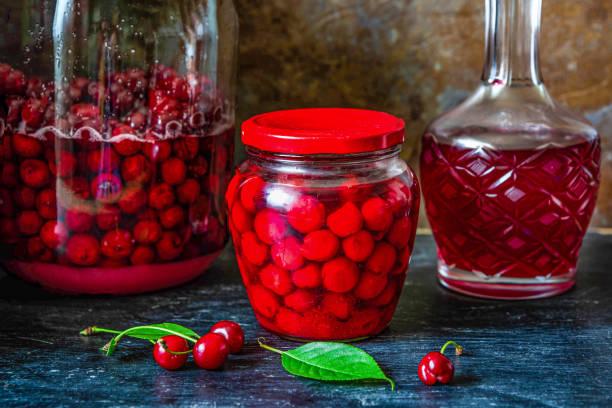
Environmental Sustainability
To support natural winemakers, we must promote environmentally conscious and sustainable methods. Regenerative agriculture is a practice that these vineyards frequently use to fight climate change and protect biodiversity. Organic agricultural practices are also given priority by natural winemakers, who reduce their reliance on artificial fertilizers and pesticides that are harmful to the environment.
In addition to helping the land and nearby ecosystems, this dedication to sustainability guarantees that wine enthusiasts in the future will be able to enjoy fine wines.
Unparalleled Taste
The flavor of natural wine is the strongest argument after serious investigation and research. These wines frequently have a rainbow of tastes and fragrances. Any palate may be captivated by the variety of sensory sensations that this wine offers, ranging from the freshness of a well-made white to the complexity of a red with age. This wine is produced with little to no intervention, letting the terroir and pure essence of the grapes take center stage.
This produces distinct and one-of-a-kind tastes that traditional winemaking techniques are unable to duplicate. Natural wines provide a unique taste experience, whether it is due to their vivid fruitiness or earthy overtones.
RENAISSANCE OF NATURAL WINE
A rebellion against the industrialization of winemaking and the natural wine renaissance arose in the contemporary period. Terroir, or the special relationship between soil, climate, and grapevine, is celebrated by artisan winemakers who have sparked a renewed love for the land. Deep ties between the soil and the bottle were fostered by this return to traditional, sustainable agricultural practices, which formed the cornerstone of this wine.
Natural winemakers avoid unnecessary modifications and artificial ingredients, in contrast to their conventional competitors. Their minimum intervention approach allows the grapes to express themselves organically, all in the name of purity. Natural wine is distinguished by its dedication to pure tastes, making it a desirable option for anyone looking for an authentic, wild taste. As the 20th century came to an end, both winemakers and consumers were becoming increasingly dissatisfied with the homogeneity of industrial wines.
There was a surge in interest in returning to more natural, uncontrolled winemaking processes. The argument for this wine is that wines created from raw grapes spontaneously fermenting with native yeasts reflect more details of the climate and the location than wines manufactured with added chemicals.
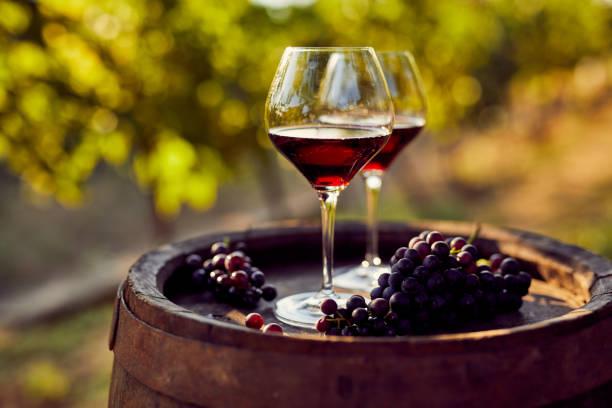
PIONEERS OF ITS MOVEMENT
Pioneers like Jules Chauvet, a renowned winemaker who pushed for a return to traditional winemaking techniques in mid-20th-century France, are largely responsible for the comeback of natural wine. The movement that is still gaining attention today was made possible by Chauvet’s philosophy, which emphasizes the harmony between wine and nature. Alice Feiring was a strong voice supporting this wine in the twenty-first century.
Feiring promoted the cause via her writings and activism, raising awareness of the value of environmentally friendly methods as well as the appreciation of the distinctive, varied tastes found in natural wines. Pioneers like Marcel Lapierre, who studied under Jules Chauvet at Beaujolais, and Chauvet himself played a significant role in the natural wine movement.
These vintners also strongly emphasized organic and biodynamic farming with minimal cellar intervention and rejected sulfites commonly used as preservatives in conventional wines. Natural wine became popular among winemakers outside of France and spread around the globe. In Georgia, Italy, Spain, and the US, naturally existing wine-producing hubs arose.
THE FUTURE OF NATURAL WINE
When it comes to sustainable procedures and the preservation of the craft’s integrity, the future of natural wine seems bright. A growing community of winemakers is dedicated to these efforts. The movement is still growing today, remaining loyal to its origins while adjusting to consumers’ shifting tastes. It’s becoming more and more clear that the desire for natural wine is a sustained trend.
Wine enthusiasts are realizing the delight of wine in its purest form as winemakers throughout the world adopt this ideal. We may anticipate seeing an even greater variety of outstanding bottles on the market as natural wine continues to gain popularity. This movement appears to be here to stay as more and more people come to appreciate the benefits of natural wine.
Natural wine is an attempt to bring winemaking back to its historical roots, where sustainability, quality, and authenticity are prioritized. Natural wine may not be for everyone, but for those who value complex tastes and the backstories of individual bottles, it’s a revelation.
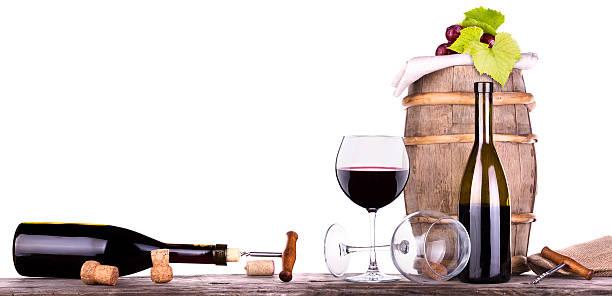
CONCLUSION
The natural wine movement is a concept that focuses on the traditional methods of winemaking, avoiding modern innovations, and embracing the natural world’s influence. It emphasizes purity, organic cultivation, and a close relationship with the terroir. Despite some misunderstandings about its differences from organic, biodynamic, and vegan wines, natural wine is becoming more popular.
It challenges the status quo by promoting sustainability, authenticity, and minimal interference. This approach may lead to a deeper appreciation for winemaking and a new depth of flavor. It’s a worthwhile venture for those who support ecologically sustainable practices and enjoy exploring the world of wine, as each bottle tells a story about nature, terroir, and tradition. Therefore, next time you think of drinking wine, please choose natural wine for your enjoyment and good health.
Thanks, I have recently been looking for info about this subject for a while and yours is the greatest I have discovered so far. However, what in regards to the bottom line? Are you certain in regards to the supply?
The facts supplied in this post are well researched and equilibrate its value and processes in reality.